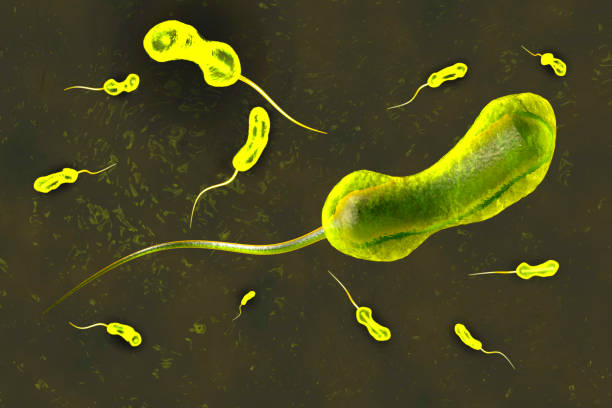- Catherine Maborukoje
- Cholera, Health and Wellness
- 0 Comments
- 1105 Views
Cholera, as a disease, kills faster. But if the carrier becomes the fastest to discover its presence in the body system, there are possibilities to rescue such a person from bidding the world farewell, if quickly remedied.
Cholera, which has been in Nigeria since 1976, recently struck again. Now, it is ravaging every nook and cranny of the Nation. As of 30th June 2024, the latest statistics from the Nigeria Centre for Disease Control and Prevention (NCDC), says a total of 2,102 suspected cases and 63 deaths have been recorded across 33 States and 122 LGAs with a case fatality rate of 3.0% since the beginning of the year. The stats continue to increase every day. This surge then comes with serious concern.
Cholera is both ‘foodborne’ and waterborne. It’s a bacterial disease that’s usually spread through contaminated water or food. While on vacation, or inter-state transportation for events, seminars or work-related purposes, if an intense case of watery diarrhoea strikes without warning; it is not far-fetched, Cholera is most likely knocking.
Cholera, as a disease, kills faster. But if the carrier becomes the fastest to discover its presence in the body system, there are possibilities to rescue such a person from bidding the world farewell, if quickly remedied. Here are signs of cholera in a body system:
Symptoms of cholera
After contracting the germs, cholera symptoms can develop as soon as a few hours or as late as five days. The following are the symptoms:
- Watery Diarrhea: This is the main symptom of Cholera The Watery diarrhea can lead to rapid fluid loss and dehydration. The stools may have a milky appearance, sometimes described as “rice-water stools.”
- Leg cramps: Muscle cramps, especially in the legs, are often experienced by cholera patients. The cramps can cause intense, severe pain and discomfort in the feet, calves, and thigh muscles.
- Nausea: Intense vomiting is a common symptom of cholera, further contributing to fluid loss and dehydration.
- Restlessness or irritability: Large-scale fluid and vital substance losses, such as those of sodium, potassium, and bicarbonate, can cause neurological symptoms such as restlessness. Rapid fluid and electrolyte loss impairs normal cellular function and can have an impact on the neurological system and brain, leading to restlessness and agitation.
As the disease progresses, signs of dehydration may be noticed which include a fast heartbeat, flexibility loss in the skin, dry mucous membranes, low blood pressure, thirst, and cramping in the muscles. Severe dehydration can cause shock, a coma, or even death if treatment is delayed.
Seeking medical attention right away is essential if vomiting and severe, watery diarrhoea occur, especially if one goes to a region where cholera is known to be an outbreak.
Treatment must be started right away to stop the sickness from spreading to other people and avoid potentially fatal dehydration.
A doctor may run a stool test to confirm the diagnosis then he or she will prescribe antibiotics and oral rehydration therapy to assist recovery of lost fluid and replace electrolytes. Intravenous fluids could be required in extreme situations.
Through contaminated food or drink, cholera can still infect others even in cases when symptoms are minimal or nonexistent.
Safety Measure
- Good Hygiene: It is crucial to maintain excellent hygiene to stop the disease from spreading. This includes not eating raw or undercooked seafood, unpasteurized dairy products, or produce that may have been cleaned in tainted water.
- Vaccination: It is advised to think about being vaccinated if one is going to be travelling to a region where cholera is known to be spreading. The vaccine is not 100% effective, but it can offer some protection from the illness. It’s also critical to recognize the warning signs and symptoms of cholera and to seek medical attention as soon as possible if any appear.
Read Also: 7 Healthy Lifestyle Tips











